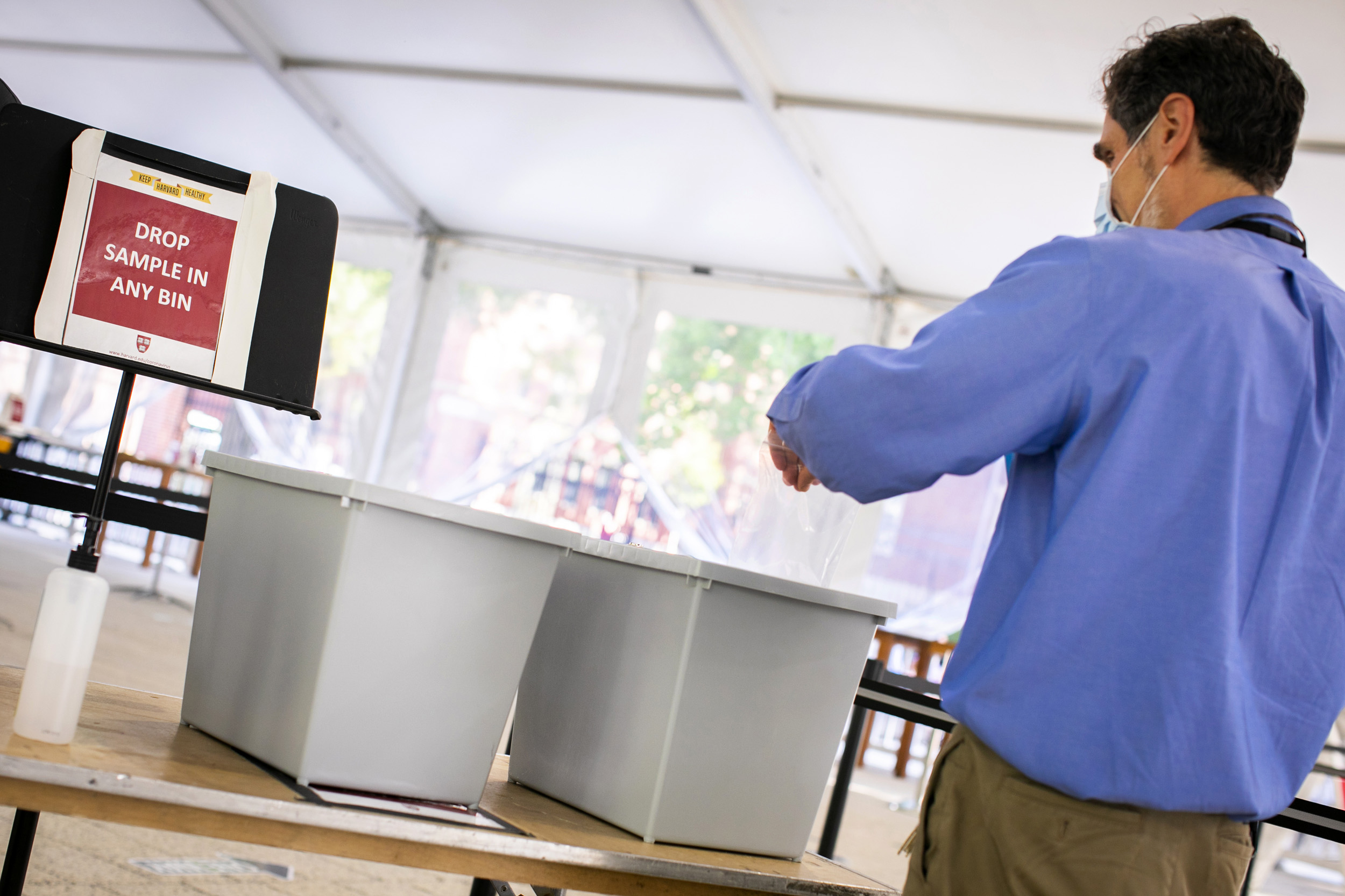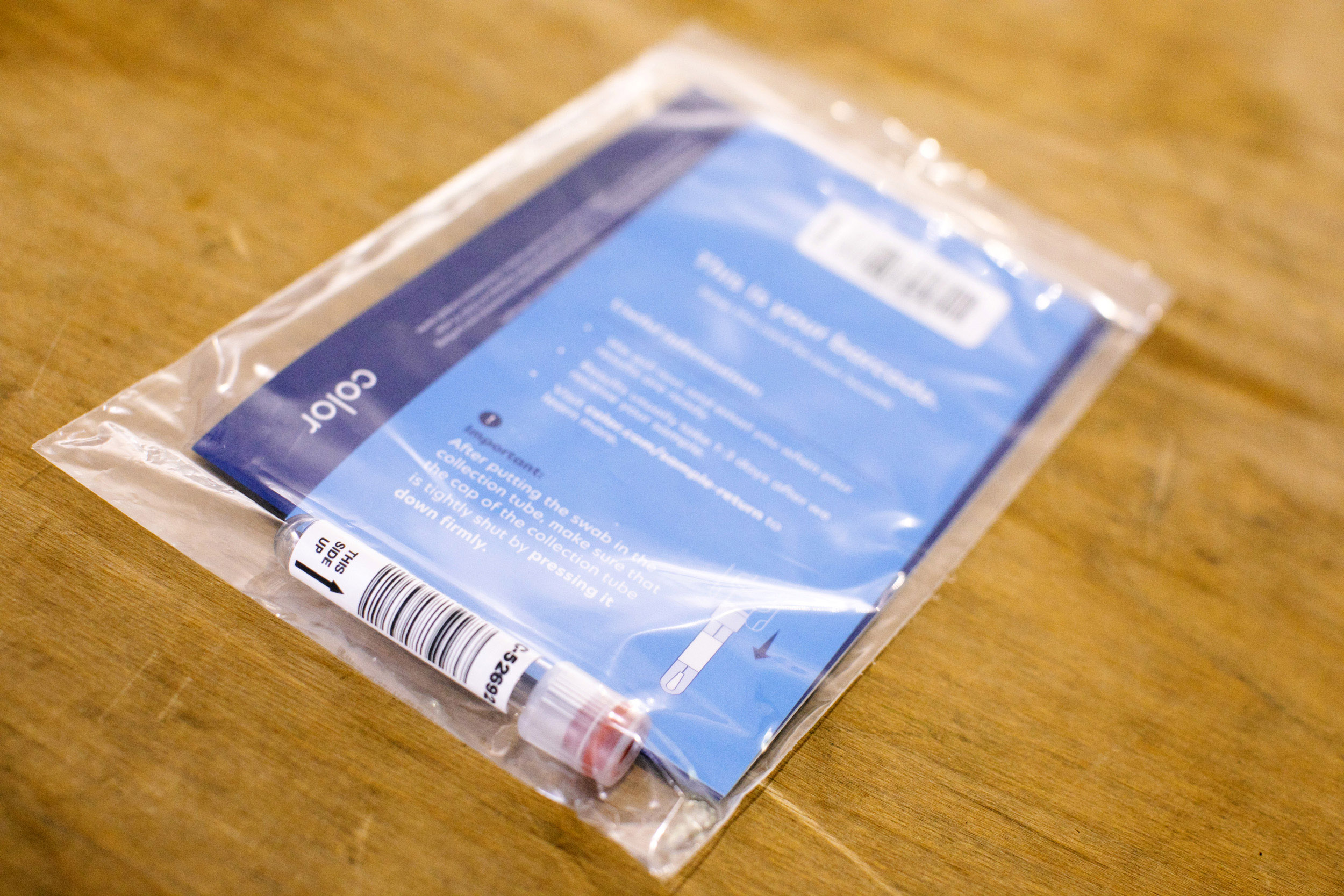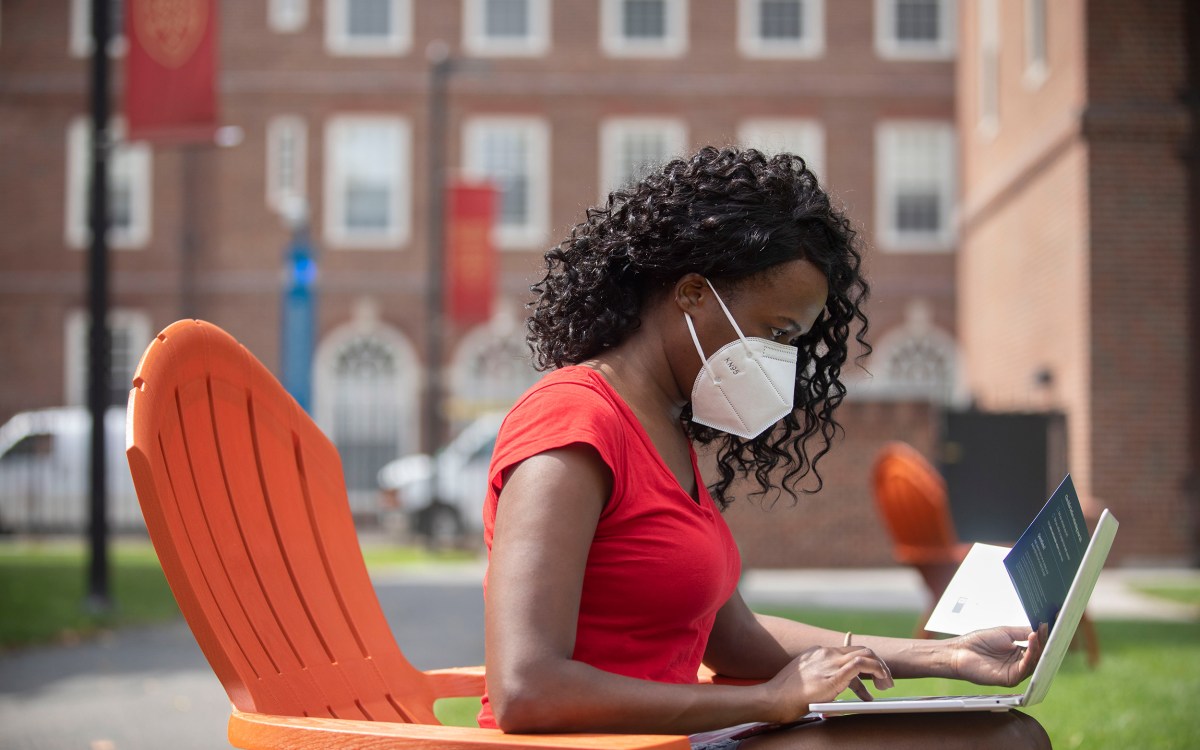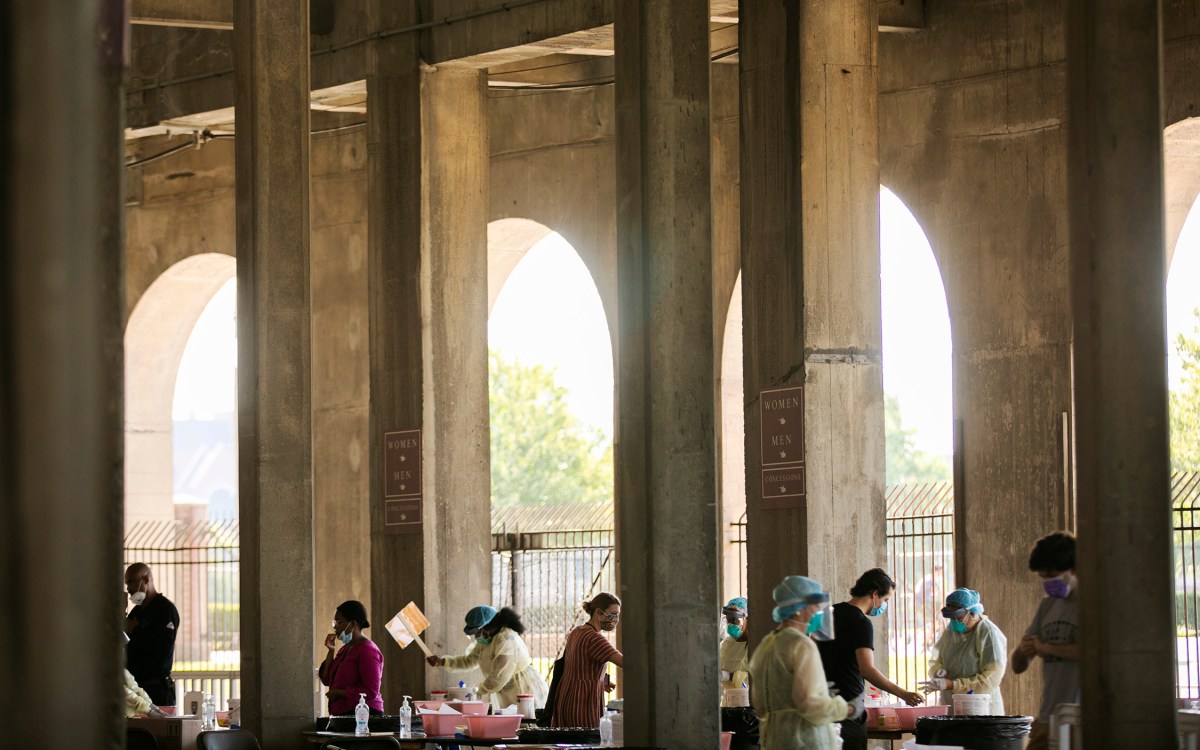
The self-administer test kits will streamline testing and allow drop-off at numerous bins located throughout campus.
Photos by Stephanie Mitchell/Harvard Staff Photographer
University to begin transition to unobserved COVID-19 testing
Self-administered screening to begin with College affiliates
Starting Friday, the University will begin transitioning to self-administered, unobserved COVID-19 testing for authorized Harvard affiliates instead of the current practice of observed testing at designated campus facilities.
The shift comes after approval from the U.S. Food and Drug Administration (FDA) and will streamline screening for the students, faculty, and other personnel authorized to return to campus for the fall semester. The University has established testing protocols for these individuals, who include anyone living on campus, working in residential housing or elsewhere on campus, or authorized to be on campus four hours or more per week. The transition to unobserved testing is part of the University’s ongoing efforts to monitor the state of the virus throughout the community and prevent, to the greatest extent possible, outbreaks of the highly transmissible coronavirus.
“Our plans for the fall semester include having a limited number of students and personnel on campus, with courses being taught largely remotely,” said Giang Nguyen, executive director of Harvard University Health Services. “For those who are on campus, COVID screening through frequent testing is a critical piece of the University’s plan for monitoring and assessing the presence of the virus in our community. This move to unobserved, self-administered testing allows us to provide more convenience for our students, faculty, and staff, while also continuing to gather very timely data about the public health situation on campus, and then use that information in our decision-making around our protocols and policies.”

Self-administered testing will be phased in over the next 10-14 days, beginning with in-residence Harvard College students and staff. On Friday, authorized College affiliates can pick up their self-testing kits for next week at any of the four residential House locations previously used for observed testing. Beginning next Friday, residential College affiliates will receive their weekly supply of kits in the mail. There will be numerous collection bins placed around campus for completed kits.
“We are thrilled to have College students back on campus and have been heartened by their commitment to following public health guidance for the sake of the community,” said Meghan Lockwood, Interim Allston Burr Resident Dean and special adviser to the Harvard College Dean’s Office. “It’s been fun to greet students from a safe distance at the observed testing locations and to see how quickly they’ve adapted to testing protocols. Now that we are transitioning to unobserved testing, students will take tests from the comfort of their own residences. The move to unobserved testing will make the process more flexible and convenient. It also puts more responsibility in students’ hands as we all work to ensure the safety and well-being of our community.”
Next week, unobserved testing will be introduced across other Schools and units. Individuals authorized to be on campus will be notified by their local leadership about when to make the transition to unobserved testing. In the meantime, those individuals will continue with observed testing at one of the designated locations.
“Campus Services has worked with each School and unit on testing kit distribution logistics,” said Meredith Weenick, vice president for campus services. “Each week, Schools and units will place their orders for testing kits, with delivery of those orders on Thursdays so that by the end of the week, every eligible individual has their testing kits for the following week. We will also have 36 collection bins placed throughout campus, where individuals will drop off their completed testing kits, with those bins being collected several times per day for test processing.”
A training module has been created in the Harvard Training Portal offering guidance for those administering tests to themselves. As it did with observed testing, Harvard has engaged a third-party vendor, Color, to help manage the logistics of the new process, with tests being processed by the Broad Institute. Results will be returned to affiliates in approximately 24 hours following the delivery to the Broad.
Any students, faculty, or staff who test positive for COVID-19 will be contacted by a member of Harvard University Health Services and guided through quarantine and isolation protocols, and contact tracing will begin immediately to identify potentially infected individuals and prevent further spread.
In addition to regular screening tests, all individuals authorized to be on campus must each day complete a Crimson Clear attestation before arriving at the University or leaving their dorm room. Within the profile section of their Crimson Clear account, individuals are provided information on their eligibility status, how frequently they must be tested, and their last testing date.
University-wide data on COVID-19 screening tests will continue to be updated on a daily basis on the Harvard COVID-19 Dashboard.
“Regular screening is a critical piece of our protocols, but not the only thing we should be doing to help keep Harvard healthy,” Nguyen said. “Basic, good habits, including wearing face coverings, safe distancing, and hand washing, are also just as important in our efforts to control this virus on our campus. And, also keep your phone powered and nearby at all times. As we learn of positive cases, our contact tracers are working diligently to contact any individual who might have been exposed, and that timely communication is critical.”





